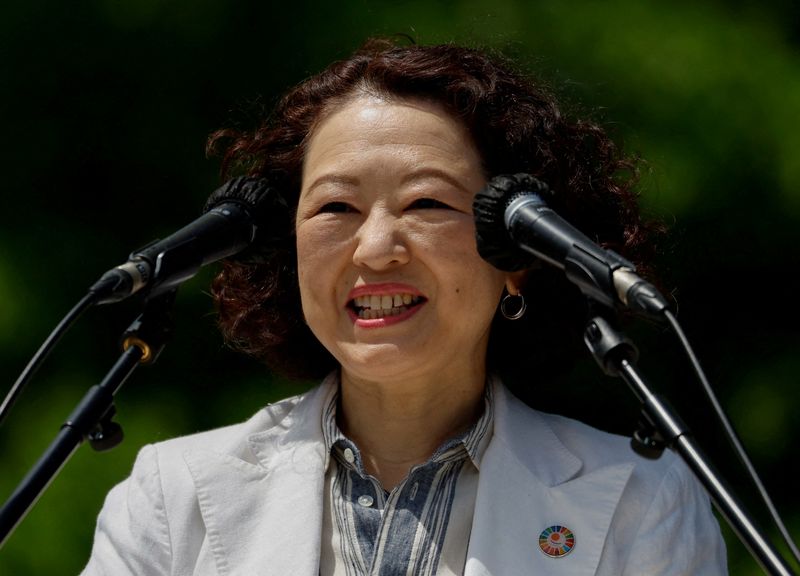By Anton Bridge and Tetsushi Kajimoto
Tokyo (Reuters) – Japan’s annual pay increases this year must exceed the 5.1 percent guaranteed last year because real wages continue to fall, the head of the Rengo Trade Union said on Friday.
President Tomoko Yoshino said the impact of the price rise meant the group was focused on securing a result that topped last year, which was the biggest increase in 33 years.
“Even after last year’s wage hikes, I think there are few people who feel that their real living conditions have improved,” Yoshino said in an interview.
The outcome of the “Shunto” labor negotiations is a barometer for spending and sustainable inflation in Japan, and a key factor influencing the central bank’s monetary policy decisions.
Rengo is officially seeking pay increases of 5% or more in this year’s salary negotiations.
Real wages, which take into account the impact of inflation, fell in November for the fourth consecutive month, data showed this month, highlighting how rising prices, particularly food costs, have hit the portfolios of the Japanese daily.
Yoshino spoke to Reuters hours before the Bank of Japan raised its short-term interest rate target on Friday. She declined to comment on Central Bank policy ahead of the result.
The BOJ has set sustained, broad-based wage hikes as a precondition for rising borrowing costs and on Friday it said many companies had indicated they would offer solid pay hikes during negotiations. ” This year.
Small businesses, however, generally struggle to pass on rising costs, including staff costs, to customers, Yoshino said, adding that this year’s negotiations will focus on how SMEs can find the resources needed to finance the desired increases.
Rengo has targeted raises of at least 6% for small businesses, up from the 4% to 5% they achieved last year, to narrow the income gap with workers at larger companies.
Larger companies such as Uniqlo Parent Fast Retailing said it would raise salaries of full-time headquarters and sales employees by up to 11% from March, while Nippon Life insurance (NSE:) and Mitsui Fudosan (OTC:) said they expected hikes above 5%.

The government has repeatedly pushed companies to aggressively raise pay. Years of deflation during Japan’s “lost decades” have meant that many Japanese workers have now fallen behind other countries in paying and purchasing power.
“Talented young people go abroad,” Yoshino said. “Japan has the lowest wages among developed countries, so if wages don’t rise, we will be left behind.”

